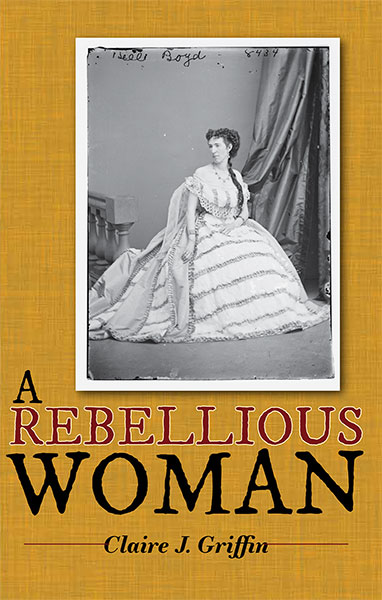About
Language and History
A Rebellious Woman is historical fiction that closely follows the events of Belle Boyd’s life. Her family were slave owners. This will be troubling to some readers. It should be troubling to all of us. Nonetheless, it is a historical fact, and Belle’s story cannot be changed. The Black characters in the book are slaves. Many people prefer to use the term “enslaved person” because it places the burden of slavery where it belongs — on the enslavers. And it reminds us that slaves were people. The problem with this usage for me as a writer of historical fiction is that the “personhood” of enslaved persons was denied to them every single day of their lives. Few if any were seen as “persons” by their owners. Belle may have been an exception since she taught Eliza to read and they wrote to each other throughout their lives. But the reality is that Belle and her family were slave owners, and Eliza was Belle’s personal slave. To me there is no other word to use. Yes, it’s a word that makes people uncomfortable, including me. But I chose it deliberately because in my opinion “enslaved persons” does not accurately describe the harsh reality of their lives.
In the book, as in real-life, Belle thinks of Eliza as a friend, apparently unable to understand this is impossible. As Eliza writes to Belle after the Civil War, “Before Freedom came, we was close, but we wasn’t friends. You can’t be friends with someone that owns you”. By the end of the book, which covers forty years, Eliza and her family have prospered and Belle’s fortunes have declined. These are historical facts.
To me, Belle’s story is primarily a woman’s story. When I first learned about her, I was intrigued by this woman who broke so many rules. And I was equally fascinated by the rules themselves, which is why a section on Etiquette is included in the book. At one point in her tumultuous life, Belle may have been driven literally insane by the limitations placed on her. She was wrong-headed in so many ways, yet you have to at least recognize the strength of her determination to live her own life and make her own choices. Readers will surely be aware of the irony that she insisted on freedom for herself while denying it to others. —CJG
Philanthropy

